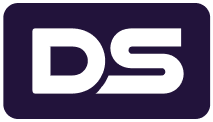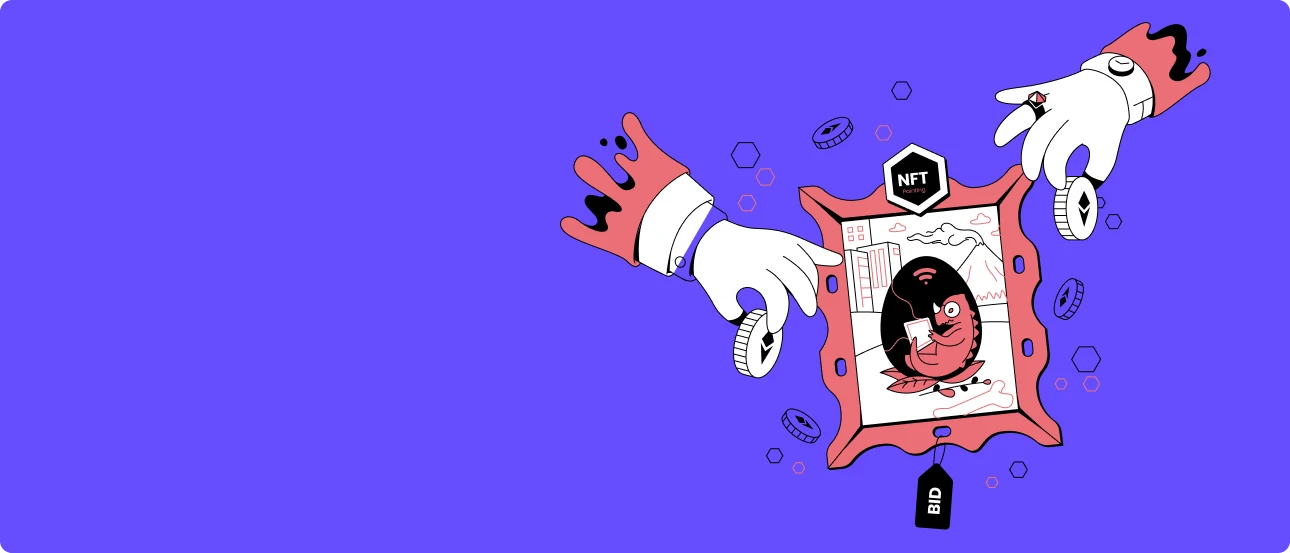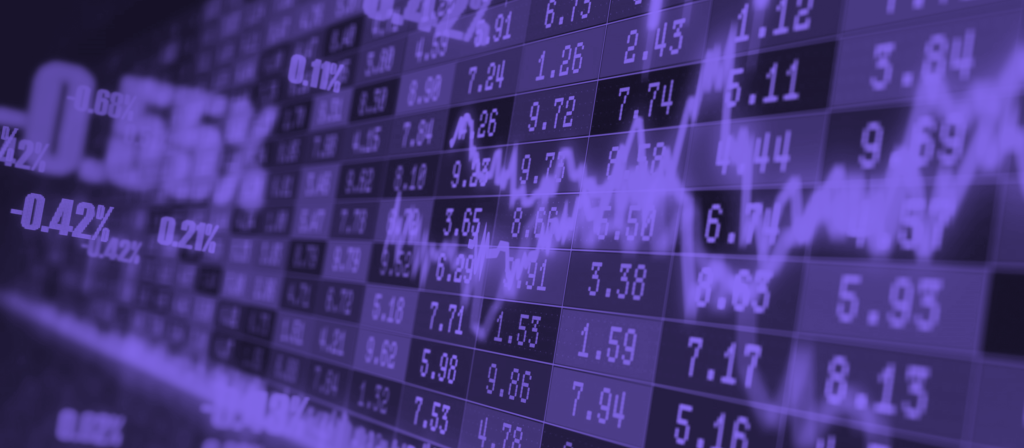Definition
Non-fungible tokens (NFT) are digital assets used to represent a wide range of unique, one-of-a-kind assets from collectibles to digital artwork to identity documents to land titles.
Understanding NFTs (non-fungible tokens)
Non-fungible tokens (NFTs) are cryptographically generated and utilise Blockchain technology (like cryptocurrencies) to give someone ownership over something valuable that is scarce and cannot be replicated (both tangible and intangible).
Assets that can be represented as NFTs range from digital goods, such as items that exist within virtual worlds, to claims on physical assets such as merchandise or real estate.
What is non-fungibility?
‘Non-fungible’ refers to something that is unique and cannot be replaced with something else.
EXAMPLE
Normal money is fungible – you can trade one $5 note for another $5 note and you would essentially have the same thing (the same goes for trading 1 Bitcoin for another). On the other hand, a one-of-a-kind trading card or piece of artwork is truly unique and is therefore ‘non-fungible’.
With the world becoming increasingly digitised, NFTs act as a unique digital certificate that can give you ownership over anything from a pair of socks to a plot of land.
The NFT space has exploded in 2021 and it is likely to play a key role in the future of ownership.
Some of the proposed use-cases and industries for NFTs include (but are not limited to):
- Real-estate
- Gaming
- Digital Identity
- Academic & official qualifications
- Medical records
- Sports tickets and merchandise
- Collectibles and digital art
Key Takeaways
- An NFT is a special cryptographically generated token that uses Blockchain technology to be linked with a unique digital asset that cannot be replicated.
- Owning an NFT is like owning a one-of-a-kind work of art or a collectible antique.
- Non-fungible tokens can be used for digital assets of all kinds that need to be differentiated from each other in order to prove their value or scarcity.
- These digital assets can also be tied to physical, real-world items in a number of ways.
- NFTs have many use cases including digital collectibles, music, digital identity, artwork, concert tickets, real-estate, music, in-game items and much more.
- NFTs differ from cryptocurrencies such as Ether (ETH), Bitcoin (BTC) and XRP, which are fungible; you can exchange one Bitcoin for any other Bitcoin.
- NFTs can change our ideas of ownership, making it possible to reliably own both digital and real-world assets that are on the other side of the world.
How do NFTs work?
NFTs can be created on smart contract-enabled Blockchains that also support non-fungible tokens.
Normally, on the Blockchain, when you send cryptocurrency to someone, a ledger entry gets made recording the transaction. When this is done with an NFT, a ledger entry is made, as well as a unique address to the file, establishing its uniqueness and the ownership of that NFT.
Non-fungible tokens and their smart contracts allow for detailed information to be added, like the identity of the owner, the asset’s history and much more.
Basically, when someone transfers one NFT to someone else, let’s say an NFT representing a concert ticket, the unique code (which represents the NFT) gets transferred along with it on the Blockchain.
This makes sure that you can easily check on the Blockchain who owns the concert ticket as it is a one-of-a-kind item. When any NFT is created it is put onto the Blockchain and is time stamped, making digital ownership simple and easy to identify.
Why would someone want to own an NFT?
While most NFTs are not ‘real’ in the sense that you can’t physically hold them (like Bitcoin), many people buy NFTs for their emotional value. Given NFTs are a one-of-a-kind item, this is not so different from buying physical items for their emotional value and the personal, subjective satisfaction they bring.
Lots of people buy things they don’t necessarily need. They do it because it makes them feel a certain way, which can also be true for a GIF, an image, video, in-game item, or any other digital asset.
The other reason to purchase an NFT is because you think it’s valuable and will continue to increase in value. Lots of people have made money from buying and reselling NFTs (digital artwork, for example), and this space is likely to experience some rapid growth in the years to come.
Fungibility vs non-fungibility
Fungibility refers to an asset’s ability to be exchanged with a similar asset without sacrificing its value. Fungibility also refers to the characteristics of an asset, such as its divisibility and value.
For example, one $5 note is identical to another $5 note in terms of value. If someone lends you $5 you don’t have to pay them back with the exact same note since any $5 note has the same value.
Cash, Bitcoin and other cryptocurrencies are fungible assets/tokens that carry a uniform value that is not dependent on their history/previous owner.Non-fungible tokens (NFT) and assets on the other hand, are things like rare stones, works of art, sports tickets and collector’s items. They are unique and there is no item that is identical in value to them.
Simply because they are one-of-a-kind and not interchangeable. For example, take Pokémon cards. While you can trade these cards, a regular Squirtle card is not the same as a limited-edition holographic Charizard – this is unlike things like Bitcoin which can be traded for another Bitcoin (which carries the exact same value).
What are some NFT use-cases?
Identity
Many forms of identity, academic qualifications, medical records and official documents are now digitised. NFTs provide a way for identity to be securely held by the rightful owner, removing the danger and stress of safeguarding a physical paper document while helping combat identity theft.
Gaming
In-game virtual economies and marketplaces are extremely popular these days as they are a key component of a player’s ability to progress and level up in the game (World of Warcraft and Fortnite, for example).
Similarly, selling high-level gaming accounts or in-game assets to people who don’t want to put in the work to earn these profiles/items is another avenue that has proven to be extremely lucrative.
Blockchain gaming and NFTs will greatly improve these areas of gaming, allowing players to buy and sell in-game items and gaming profiles directly for fiat currency. This will allow users to generate real-world revenue through gaming while providing an extremely compelling solution to digital ownership in the gaming world.
Sports
In the sports industry, counterfeit tickets and merchandise are a big problem which NFTs and Blockchain technology combat. NFTs allow us to convert physical game tickets into non-fungible tokens that are truly unique and assigned to the rightful owner, digitising the ticket process and helping weed out counterfeits – a perfect use-case for NFTs.
Collectibles
NFTs will take collectors’ items to a whole new level. With tokenised versions of collectibles such as limited-edition merchandise, people will be able to easily purchase one-of-a-kind collectibles (that may increase in value), along with the Blockchain-secured proof of ownership of that item.
Art
Maintaining copyright is a real challenge for digital artists. NFTs allow you to buy a piece of original artwork and proudly showcase it in a virtual space knowing the full history of the asset. Not only is it an easy way to prove ownership of the piece but artists will also receive a bigger percentage of the payment given that no third-party fees are required.
Real-estate
Contrary to popular belief, NFTs aren’t exclusive to the virtual world. You can actually buy real-estate and pay for the property with a cryptocurrency like Ethereum. After the payment is complete, you’ll receive a unique NFT token that would be used as your proof of ownership.
In simple terms, what you’ve essentially just done is turn the usually long and drawn out process of buying a house into a simple and secure peer-to-peer transaction, removing the need for lawyers, agents, banks and the usual waiting period.
Why are NFTs important?
The ability of NFTs to reliably and immutably prove digital ownership forms part of our progression towards an increasingly digital world that does away with old, inefficient systems.
NFTs are an extension of the Blockchain revolution, building on its promise of a system with trust built into the network itself that can offer us new possibilities and a way to exchange and own virtually anything of value in a secure and reliable way.
NFTs and smart contracts
Non-fungible tokens are digital assets that contain unique and identifying information recorded in smart contracts.
NFTs and their smart contracts allow for detailed attributes to be added to an NFT, making it what it is. The information recorded in these smart contracts is what makes each NFT unique and irreplaceable by another similar token.
How are NFTs made?
NFTs (Non-Fungible Tokens) are created through a process called minting, which involves converting a digital asset—such as artwork, music, or videos—into a unique, blockchain-based token that verifies its authenticity and ownership.
Steps to Create an NFT:
- Choose a Digital Asset – Select the content you want to tokenize, such as an image, video, or game item.
- Pick a Blockchain – Ethereum is the most widely used, but alternatives like Solana, Polygon, and Binance Smart Chain also support NFTs.
- Set Up a Wallet – A crypto wallet (e.g., MetaMask or Phantom) is needed to store your NFT and pay for transaction fees.
- Use an NFT Marketplace – Platforms like OpenSea, Rarible, and Magic Eden allow users to create and sell NFTs.
- Mint the NFT – Upload your asset, configure settings (such as royalties), and pay a small fee to record it on the blockchain.
Once minted, your NFT becomes a unique, verifiable digital collectible that can be bought, sold, or traded on supported marketplaces.
Where are NFTs traded, bought and sold?
Non-fungible tokens are not traded on regular cryptocurrency exchanges, instead they are bought or sold on digital marketplaces like Opensea, Openbazaar or Decentraland’s LAND marketplace. Since each NFT token is unique, there aren’t exchanges for NFTs. Instead, there are marketplaces that connect individual buyers with individual sellers.
What are some of the top NFT projects?
The NFT space has evolved significantly, with new projects gaining traction and older ones maintaining their dominance through innovation and strong communities. Here are some of the most notable NFT projects in 2025:
- Bored Ape Yacht Club (BAYC) – One of the most valuable and exclusive NFT collections, BAYC continues to thrive, offering holders access to high-profile events, metaverse integrations, and brand partnerships. The ecosystem now includes Mutant Apes, Bored Ape Kennel Club, and ApeCoin, further expanding its utility.
- Pudgy Penguins – This heartwarming NFT collection has gone beyond the blockchain, securing major brand deals and launching physical toy lines, making it one of the most mainstream-friendly NFT projects.
- Azuki – A top anime-inspired NFT collection, Azuki continues to innovate with dynamic NFTs, physical merchandise, and in-depth storytelling, attracting a strong community of collectors and enthusiasts.
- Decentraland – As one of the most established virtual worlds, Decentraland remains a leader in metaverse real estate. In 2025, it has introduced AI-driven avatars, expanded commercial partnerships, and new virtual experiences for brands and users.
- Ethereum Name Service (ENS) – ENS domains are now a staple for crypto users, enabling easier transactions and digital identities. The project has expanded to support cross-chain compatibility, making decentralized domain names more accessible than ever.
- Ruyui – An emerging project that blends on-chain avatars, animation, and gaming on the Abstract blockchain, Ruyui is making waves as a next-generation NFT experience.
What are the current downsides of NFTs?
Despite the ability of NFTs to unlock new revenue streams in gaming, sports, the arts, and technology, it is still a very new technology and there are many obstacles to overcome. Some of the most notable downsides to NFTs, include:
- Decentralised networks are not overly user-friendly (yet). For instance, verifying authenticity, selling, purchasing and storing an NFT currently requires at least a basic understanding of Blockchain technology and cryptocurrency.
- Building decentralised apps for non‑fungible tokens can be tricky and time consuming with the current tech available. Simplification is needed so NFTs are easy to use for people who aren’t Blockchain savvy.
- NFT games can have a dangerous ‘hot potato’ effect. Players buy an in-game asset in the hope of selling it on for a profit, but if the market collapses, they’ll lose everything they invested.
- Similar to Bitcoin when it begun, NFTs can be hard to wrap your head around as they are often entirely digital and impossible to physically touch. While this will be a barrier for some, the digital marketplace is already beginning to become a legitimate and extremely lucrative industry.
What are some examples of NFTs in art and music?
NFTs continue to transform the art and music industries, allowing creators to monetize digital works in innovative ways. Here are some notable examples of high-profile NFT sales in both fields:
Art:
- Beeple’s “Everydays: The First 5000 Days” – Digital artist Beeple sold this NFT collage for $69 million, making it one of the most expensive digital artworks ever sold.
- Pak’s “The Merge” – This generative art NFT was sold for $91.8 million in a unique sale where multiple buyers contributed to the total.
- AI-Generated Art by Botto – Botto, an AI-powered artist, has been auctioning AI-generated NFTs, raising millions and redefining the role of AI in digital art.
Music:
- Grimes’ Digital Art & Music NFTs – Musician Grimes sold her collection of music and visual NFTs for $5.8 million, demonstrating the crossover between digital art and music.
- The Weeknd’s NFT Drop – The artist released an exclusive NFT collection featuring an unreleased song and visuals, selling out within minutes.
- Snoop Dogg’s NFT Mixtape – Snoop Dogg embraced NFTs by releasing an entire mixtape as NFTs, allowing fans to own unique music tracks with exclusive content.
These examples highlight the growing adoption of NFTs in creative industries, offering artists new ways to engage with fans, retain ownership, and monetize their work.






